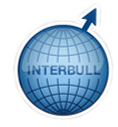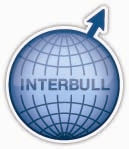|
|
2018 Interbull Meeting
Date: 9 - 13 February 2018 Venue: Aotea Centre, Auckland, New Zealand
General Program - Interbull Open and Business Meetings
Day |
Time |
Interbull Annual Meeting |
Saturday 10 February |
13:30 to 15:30 |
Business Meeting 1 |
|
16:00 - 17:30 Two parallel sessions |
Interbull Open 1: Availability and use of genetic and genomic information in dairy and beef herd management |
Interbull Open 2: R&D in (inter)national evaluations: Calving traits and fertility in dairy and beef cattle. |
||
Sunday 11 February |
08:30 to 10:30 |
Interbull Open 3: R&D in (inter)national evaluations: Implementation of new traits in dairy and beef cattle. |
|
11:00 to 12:30 |
Interbull Open 4 - Free Communication |
|
13:30 - 15:30 |
Interbull Open 5: Addressing the challenges of genomic selection in international genetic and genomic evaluations in dairy and beef cattle. |
|
16:00 - 17:30 |
Business Meeting 2 |
Scientific Program - Interbull Open Session
Download the scientific progarm for the Interbull Open Meeting as pdf
|
Session |
Time |
Author |
Scientific Report Title |
Organization |
Saturday 10 February |
Interbull Open 1: Availability and use of genetic and genomic information in dairy and beef herd management. |
16:00 |
E. Nicolazzi |
Genomics in the U.S. Dairy Industry: current and future challenges |
CDCB |
16:15 |
M. Stephen |
Developing metrics to rank individual herds according to data quality |
|
||
16:30 |
A. Sunstrum |
A New Data Paradigm: Improving the well-being, profitability, and sustainability of beef and dairy herds using an on-farm automated continuous novel phenotyping and informed genomics platform |
|
||
16:45 |
O. Powell |
Can genomics enable genetic evaluation with phenotypes recorded on small-holder farms? |
|
||
17:00 |
E.C. Ooi |
Use of the Daughter Fertility Australian Breeding Value to improve herd reproductive performance of dairy cows in Northern Victoria. A retrospective cohort study to examine the efficacy of the daughter fertility ABV, as well as to explore the attitudes and intentions of dairy farmers toward selection of high daughter fertility ABV sires. |
|
||
17:15 |
J. Pryce |
Using genomics to improve dairy heifer selection decisions |
|
||
Interbull Open 2: R&D in (inter)national evaluations: Calving traits and fertility in dairy and beef cattle. |
16:00 |
R. Lefebvre |
Genetic evaluation for stillbirth in French beef cattle breeds |
|
|
16:15 |
F. Pearston |
Calf survival evaluations for the UK Dairy industry |
|
||
16:30 |
T. Pabiou |
Using direct and maternal Interbeef information to increase genetic gains in Irish beef |
|
||
16:45 |
K. Stachowicz |
Changes to the genetic evaluation of fertility in Irish dairy cattle |
|
||
17:00 |
A. Liu |
Genotype by environment interaction for female fertility traits under conventional and organic production systems in Danish Holsteins |
|
||
17:15 |
S. Suyadi |
Evaluation of reproductive performance and fertility index of Local Ongole x Limousin or Simental Crossbred Cattle in Jombang Regency-East Java Province, Indonesia |
|
||
Sunday 11 February |
Interbull Open 3: R&D in (inter)national evaluations: Implementation of new traits in dairy and beef cattle. |
08:30 |
F. Malchiodi |
Implementation of genomic evaluation for digital dermatitis in Canada |
|
08:45 |
M.A. Perez-Cabal |
Genetic and genomic evaluation of claw health traits in Spanish dairy cattle |
|
||
09:00 |
H. Hamann |
Estimation of the heritability of a newly developed ketosis risk indicator and the genetic correlations to other traits in three German cattle breeds |
|
||
09:15 |
M. Price |
Genetic parameters of immune response estimated using two genetically divergent groups of Holstein-Friesian dairy heifers |
|
||
09:30 |
E. Rius Vilarrasa |
Improved genetic evaluation of health traits using metabolic biomarkers in Nordic dairy cattle |
NAV |
||
09:45 |
J. Vosman |
Genetic parameters for health traits using farmer recorded data in the Netherlands |
|
||
10:00 |
R. Finocchiaro |
Alternative use of Somatic Cells Counts in genetic selection for mastitis resistance: a new breeding value for Italian Holstein breed |
ANAFI |
||
10:15 |
L. De Haer |
Genetic relation between antibody response and faecal shedding of MAP in dairy cattle |
|
||
Interbull Open 4: Free Communication |
11:00 |
J. Pryce |
Genomic breeding values for heat tolerance in dairy cattle |
|
|
11:15 |
Y. Atagi |
Effect of heat stress on production traits of Holstein cattle in Japan: parameter estimation using test day records of first parity and genome wide markers |
|
||
11:30 |
Y. Wang |
Genetic analysis of skinfold thickness and its association with body condition score, and milk production traits in Chinese Holstein population |
|
||
11:45 |
A. Mukherjee |
Use of single nucleotide polymorphisms in PPP1R11 genes associated with daughter pregnancy rate for prediction of genetic merit for reproduction in Karan Fries bull |
|
||
12:00 |
R. Torres Junior |
Is a 35-day feeding test with automatic daily weighting good enough for evaluating beef cattle for feed efficiency traits? |
|
||
12:15 |
M. Camara |
A novel, comprehensive genetic and management initiative to reduce the environmental impact of New Zealand dairy cattle. |
|
||
Interbull Open 5: Addressing the challenges of genomic selection in international genetic and genomic evaluations in dairy and beef cattle. |
13:30 |
B. Harris |
Genomic reliability algorithm for a single step marker model |
|
|
13:45 |
P. Vanraden |
Validating Genomic Reliabilities and Gains from Phenotypic Updates |
|
||
14:00 |
G. Wiggans |
Discovering and validating relationships among genotyped animals |
|
||
14:15 |
M. Calus |
Efficient computation of base generation allele frequencies |
|
||
14:30 |
D. Lourenco |
Tuning indirect predictions based on SNP effects from single-step GBLUP |
|
||
14:45 |
J. Vandenplas |
Integration of foreign estimates of SNP effects into a domestic SNPBLUP |
|
||
15:00 |
E. Mäntysaari |
Solutions for the fixed effects, yield deviations and daughter yield deviations from a data subject to genomic selection |
|
||
15:15 |
E. Venot |
Assessment of Single Step benefits for on-farm French National Beef genetic evaluations of birth and weaning traits |
|

